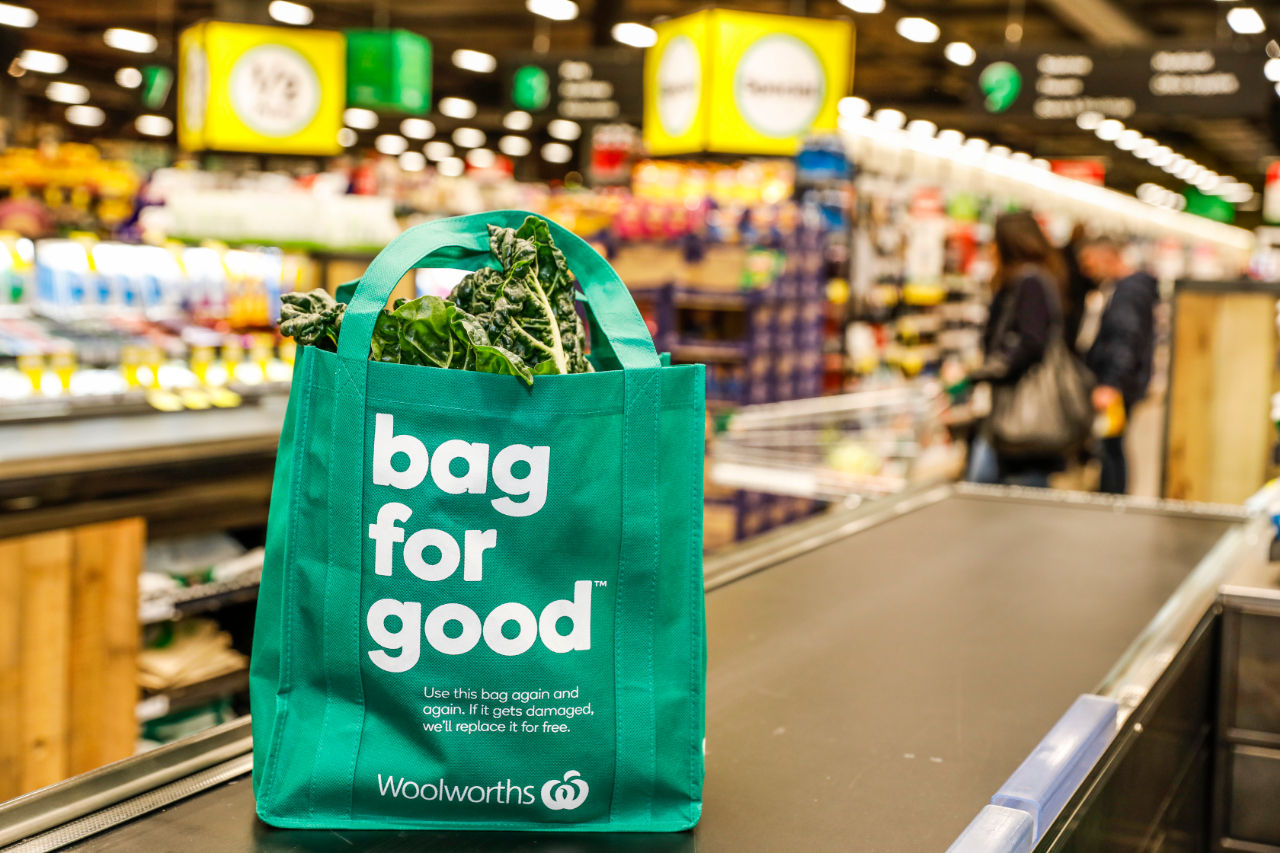Wednesday 19 June 2019: Woolworths customers have overwhelmingly embraced a more sustainable way of shopping since the phase out of single-use plastic bags nationally 12 months ago.
Around one in six transactions (or 16 percent) at Woolworths now include the purchase of a reusable bag, and the number continues to go down each month.
As new shopping habits have formed, Woolworths has issued around three billion fewer plastic bags from its stores over the last 12 months. This equates to a 4,700 tonne reduction in single-use plastics going into the environment over the course of the year.
Single-use plastic bags have been banned by governments in Queensland, Western Australia, South Australia, Tasmania, ACT and NT, with Victoria set to follow in November.
To assist customers with the transition, Woolworths rolled out reusable bag reminders in its app, car parks and store entrances.
Woolworths Group CEO Brad Banducci said: “We recognise change is never easy, particularly when it comes to something as habitual as grocery shopping.
“Yet one year after we phased out single-use plastic bags, it’s clear Australians have formed new habits and embraced a vastly more sustainable way of shopping with reusable bags.
“We’re incredibly grateful to our customers for coming on this journey with us to help clean up Australia’s waterways for the benefit of local communities and marine life.
“We also understand there is a lot more we can do to help create a truly circular economy, and fully support the Australian Packaging Covenant Organisation’s 2025 National Packaging Targets.”
Landcare Australia CEO Dr. Shane Norrish said: “Our Coastcare and Landcare volunteers invest a lot of time and effort helping to restore and protect our coastal, marine and river environments.
“Plastic pollution is a real issue for groups who are involved in clean-up projects. However, billions of plastic bags have been taken out of the system by Woolworths and its customers, which is having a positive impact on our waterways and our coasts.
“Together we are making a difference. We need to continue driving progress by engaging the entire community and inspire Australians to be aware, empowered and active in caring for the environment.”
Planet Ark Deputy CEO Rebecca Gilling said: “According to the waste hierarchy it’s always better to reuse than recycle, so we’re encouraged to see shoppers making the switch.
“We hope that over time we’ll see an even greater reduction in the number of reusable bags sold at checkouts as shoppers really embed the habit of bringing their reusable bags with them.
“In the meantime, fewer single-use bags will end up as litter or in our oceans, where they cause serious harm to marine life.”
In March 2019, more than 500 Australian schools and early learning centres received grants for hands-on environmental projects following the first round of the Woolworths Junior Landcare Grants program. The program is funded with money made from the sale of the Woolworths ‘Bag for Good’, which was launched on 20 June 2018. The ‘Bag for Good’ costs 99 cents and when it gets damaged, Woolworths will replace it for free, no matter when a customer bought it.
Mr Banducci concluded: “The enthusiasm for the Junior Landcare Program among Australian schools and early learning centres has exceeded all our expectations.
“It’s a testament to the next generation’s desire to build a greener future for Australia, and reminder of our responsibility to those future generations.
“We know there is more to do, and we will continue to work hard on plastic reduction efforts across all of our stores.”
In the last year, Woolworths has removed more than 500 tonnes of unnecessary plastic packaging across its produce and bakery categories. The supermarket has also rolled out REDcycle facilities across all of its stores - allowing customers to return soft plastics to be recycled. In partnership with REDcycle, Woolworths has repurposed almost 500 tonnes of soft plastics into useful items like outdoor furniture and benches for community groups and stores.
